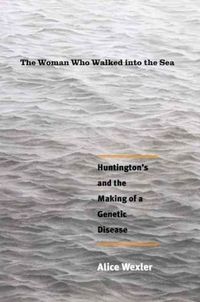

Purchase
The Woman Who Walked into the Sea
Alice Wexler
Huntington's and the Making of a Genetic Disease
Yale University Press
October 2008
On Sale: September 22, 2008
288 pages
ISBN: 0300105029
EAN: 9780300105025
Hardcover
Add to Wish List
Non-Fiction
A groundbreaking medical and social history of a devastating
hereditary neurological disorder once demonized as “the
witchcraft disease” When Phebe Hedges, a woman in East Hampton, New York, walked
into the sea in 1806, she made visible the historical
experience of a family affected by the dreaded disorder of
movement, mind, and mood her neighbors called St.Vitus's
dance. Doctors later spoke of Huntington’s chorea, and today
it is known as Huntington's disease. This book is the first
history of Huntington’s in America. Starting with the life of Phebe Hedges, Alice Wexler uses
Huntington’s as a lens to explore the changing meanings of
heredity, disability, stigma, and medical knowledge among
ordinary people as well as scientists and physicians. She
addresses these themes through three overlapping stories:
the lives of a nineteenth-century family once said to
“belong to the disease”; the emergence of Huntington’s
chorea as a clinical entity; and the early-twentieth-century
transformation of this disorder into a cautionary eugenics
tale. In our own era of expanding genetic technologies, this
history offers insights into the social contexts of medical
and scientific knowledge, as well as the legacy of eugenics
in shaping both the knowledge and the lived experience of
this disease.
Comments
No comments posted.
Registered users may leave comments.
Log in or register now!
| 


 © 2003-2024 off-the-edge.net
all rights reserved Privacy Policy
© 2003-2024 off-the-edge.net
all rights reserved Privacy Policy